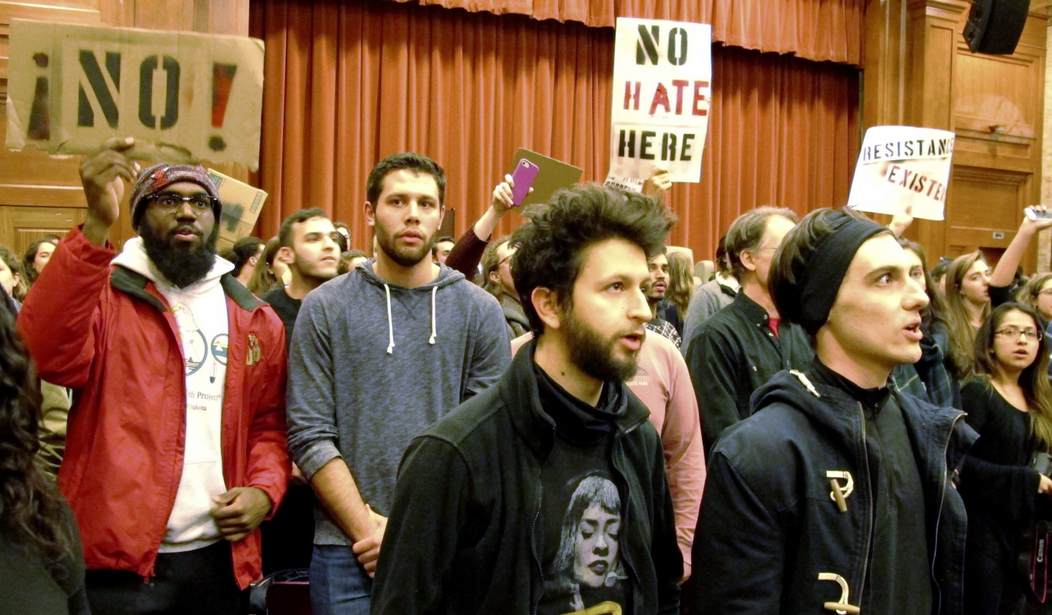All those college classes on “white privilege” may have been extremely wrong-headed, and not just because they may be false. As it turns out, “white privilege” classes do not make liberals or conservatives more sympathetic to the plight of black people. Instead, these classes only make liberals less empathetic toward poor whites, and more likely to blame them for their own poverty.
Published in the Journal of Experimental Psychology: General in April, the study divided people into two groups: liberals and conservatives were given a short lesson in “white privilege” and then asked to read a story about an unfortunate man; or they were given the story without the lesson. Half the respondents read a story about a poor white man on welfare in New York and the other half read about a poor black man on welfare.
Conservatives who learned about white privilege were no more sympathetic to the poor black man than conservatives who had not learned about white privilege. Learning about white privilege did not make liberals more sympathetic to the poor black man. It did, however, make them less sympathetic to the poor white man.
“What we found startling was that white privilege lessons didn’t increase liberals’ sympathy for poor Black people,” Erin Cooley, an assistant professor of psychology at Colgate University and one of the study’s authors, wrote in Vice. “Instead, these lessons decreased liberals’ sympathy for poor white people, which led them to blame white people more for their own poverty. They seemed to think that if a person is poor despite all the privileges of being white, there must really be something wrong with them.”
Cooley movingly wrote about her own experiences in this regard. Her fiancé is white and grew up poor. “Given a career focused on race, I was fixated on the privileges of being a white man. I couldn’t stop myself from mentioning that white male poverty wasn’t exactly the worst injustice out there.” Yet she still acknowledged that her fiancé faced systemic barriers in his path toward becoming a successful professor. “Still, the fact that he was a poor white man had escaped my empathy radar. I wondered whether this might be connected to my liberal worldview.”
Cooley described the study’s findings as “both personal and frustrating. Personal, because they suggested that being liberal may have contributed to my struggle to fully sympathize with poor white men—even the one I was falling in love with. Frustrating, because they suggested that discussing white privilege may not always increase sympathy for struggling Black people—an important part of my work.”
Reason’s Robby Soave noted the basic conclusion from the study: “This would mean that the sort of social justice training programs offered by numerous universities could be having an undesirable effect, given that most students who enroll in these classes are liberals.”
He mentioned a University of Colorado at Denver class called “Problematizing Whiteness: Educating for Racial Justice.” In researching for his book Panic Attack: Young Radicals in the Age of Trump, Soave recalled finding “numerous similar examples of academic exercises that blurred the line between anti-racism and anti-whiteness, and between scholarship and activism. It would hardly be surprising if these classes, rather than changing liberal students’ feelings toward disadvantaged black people, merely galvanized them against whites.”
To many conservatives, this result seems obvious. Not only do colleges seem bizarrely focused on white privilege, but at least one RA training was entitled “Stop White People.” The rush to attack “whiteness” with oppression has demonized people — based merely on the color of their skin.
Americans should be attuned to the problems of the less fortunate, and this study suggests that classes on “white privilege” may be making that harder.
Follow Tyler O’Neil, the author of this article, on Twitter at @Tyler2ONeil.









Join the conversation as a VIP Member